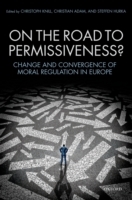On the Road to Permissiveness? seeks to describe and explain how European countries have been resolving political issues that involve conflicts of fundamental values. Specifically, these political issues include the regulation of abortion, euthanasia, homosexuality, prostitution, pornography, cannabis, sports betting, and handguns. The book addresses the empirical question of how morality policies have changed in recent decades and analyses the change and regulatory trends in different areas of morality policy. It provides a systematic long-term empirical assessment of morality policy change across countries and different fields of morality policy and compares morality policies in 19 OECD countries over a period of 50 years. On the Road to Permissiveness? is divided into three parts. Firstly, it discusses the conceptual framework and measurement approach developed by the editors and the theoretical framework guiding the empirical analyses. In the second part of the book, the editors explore the changes and trends in morality policies, and the third part develops theoretical conclusions and implications on the basis of these findings.

